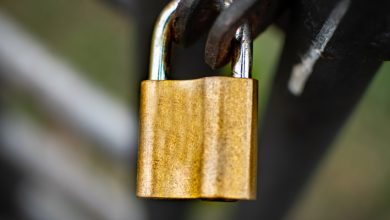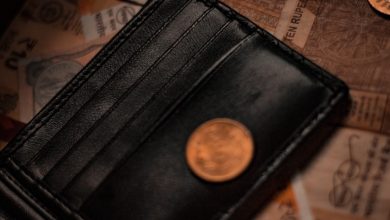How to Protect Your Crypto Wallet from Hackers

- Understanding the importance of securing your crypto wallet
- Common tactics used by hackers to target crypto wallets
- Steps to take to strengthen the security of your crypto wallet
- Choosing the right type of wallet for maximum protection
- Best practices for creating strong and unique passwords for your wallet
- The importance of keeping your wallet software up to date to prevent hacking
Understanding the importance of securing your crypto wallet
It is essential to understand the significance of securing your cryptocurrency wallet to safeguard your digital assets from potential hackers. By taking proactive measures to protect your wallet, you can minimize the risk of unauthorized access and potential loss of funds.
One crucial aspect of securing your crypto wallet is to enable two-factor authentication (2FA) to add an extra layer of security. This feature requires you to provide two different forms of identification before accessing your wallet, making it more challenging for hackers to gain unauthorized entry.
Another important step is to use a hardware wallet to store your cryptocurrency securely offline. This physical device provides enhanced security compared to online wallets, as it is not connected to the internet and therefore less vulnerable to hacking attempts.
Regularly updating your wallet software is also crucial to protect against potential security vulnerabilities that hackers could exploit. Developers frequently release updates to address known issues, so staying current with the latest version can help keep your funds safe.
Lastly, it is essential to use strong, unique passwords for your crypto wallet and avoid sharing them with anyone. By creating complex passwords that include a combination of letters, numbers, and special characters, you can make it harder for hackers to crack them and gain access to your funds.
Common tactics used by hackers to target crypto wallets
There are various common tactics that hackers use to target crypto wallets, which can result in the loss of your digital assets if you are not careful. One of the most prevalent methods is phishing, where hackers create fake websites or emails that mimic legitimate crypto platforms to trick users into entering their login credentials. Once they have this information, they can access your wallet and steal your funds.
Another tactic used by hackers is malware, which can infect your device through malicious links or attachments. Once installed, the malware can monitor your keystrokes or take screenshots to capture sensitive information like your wallet password. This information is then sent back to the hackers, who can use it to access your wallet and transfer your funds.
Social engineering is another common tactic employed by hackers, where they manipulate individuals into revealing confidential information. This can involve impersonating customer support representatives or other trusted individuals to gain access to your wallet details. By being aware of these tactics and taking steps to secure your wallet, you can protect yourself from falling victim to hackers.
Steps to take to strengthen the security of your crypto wallet
One of the most crucial aspects of safeguarding your crypto wallet from potential hackers is to strengthen its security measures. By taking the necessary steps to enhance the protection of your wallet, you can minimize the risk of unauthorized access and unauthorized transactions. Here are some essential measures to consider:
- Enable two-factor authentication (2FA): By enabling 2FA on your crypto wallet, you add an extra layer of security that requires a second form of verification in addition to your password. This can help prevent unauthorized access even if your password is compromised.
- Use a hardware wallet: Consider using a hardware wallet to store your cryptocurrency holdings securely offline. Hardware wallets are considered one of the most secure options available, as they are not connected to the internet and are therefore less vulnerable to hacking attempts.
- Keep your wallet software up to date: Make sure to regularly update your wallet software to the latest version. Developers often release updates to fix security vulnerabilities and improve the overall security of the wallet.
- Use a strong, unique password: Create a strong and unique password for your crypto wallet that includes a combination of letters, numbers, and special characters. Avoid using easily guessable passwords or reusing passwords across multiple accounts.
- Avoid sharing sensitive information: Be cautious about sharing sensitive information related to your crypto wallet, such as your private keys or recovery phrases. Keep this information confidential and only share it with trusted individuals when necessary.
By following these steps and staying vigilant about your wallet’s security, you can better protect your cryptocurrency holdings from potential security threats. Remember that taking proactive measures to strengthen your wallet’s security is essential in the ever-evolving landscape of cybersecurity.
Choosing the right type of wallet for maximum protection
When it comes to protecting your cryptocurrency wallet from hackers, choosing the right type of wallet is crucial for maximum security. There are several options available, each with its own set of advantages and disadvantages.
One popular choice is a hardware wallet, which is a physical device that stores your private keys offline. This provides an extra layer of protection against online threats like hacking and phishing. Hardware wallets are considered one of the most secure options for storing cryptocurrency.
Another option is a paper wallet, which involves printing out your private keys and storing them in a secure location. While paper wallets are immune to online attacks, they can be vulnerable to physical threats like theft or damage. It’s important to keep your paper wallet in a safe place to prevent any potential risks.
For those looking for a more convenient option, a mobile wallet or online wallet may be suitable. These wallets are accessible from any device with an internet connection, making it easy to manage your cryptocurrency on the go. However, they are more susceptible to hacking and malware attacks, so it’s essential to take extra precautions to secure your funds.
Ultimately, the best type of wallet for you will depend on your individual needs and preferences. Whether you choose a hardware wallet, paper wallet, mobile wallet, or online wallet, it’s essential to prioritize security and take proactive measures to protect your cryptocurrency from potential threats. By selecting the right wallet and following best practices for security, you can minimize the risk of hacking and keep your funds safe.
Best practices for creating strong and unique passwords for your wallet
When creating a password for your crypto wallet, it is crucial to follow best practices to ensure that your funds are secure from hackers. Here are some tips to help you create a strong and unique password:
- Include a mix of uppercase and lowercase letters to make your password harder to crack.
- Use numbers and special characters to add complexity to your password.
- Avoid using easily guessable information such as your name, birthdate, or common words.
- Make sure your password is at least 12 characters long to increase security.
- Consider using a passphrase instead of a single word for added protection.
By following these guidelines, you can significantly reduce the risk of unauthorized access to your crypto wallet. Remember, the security of your funds is in your hands, so take the time to create a strong password that will keep your investments safe.
The importance of keeping your wallet software up to date to prevent hacking
Ensuring that your wallet software is regularly updated is crucial in safeguarding your cryptocurrency from potential hackers. Hackers are constantly looking for vulnerabilities in outdated software to exploit, making it essential to stay up to date with the latest security patches and enhancements.
By keeping your wallet software updated, you are reducing the risk of falling victim to hacking attempts that could result in the loss of your valuable assets. Updates often include security fixes that address known vulnerabilities, ensuring that your funds are protected from unauthorized access.
Failure to update your wallet software could leave you vulnerable to various hacking techniques, such as phishing attacks, malware injections, and other forms of cyber threats. Hackers are always evolving their tactics to bypass security measures, making it imperative to stay one step ahead by regularly updating your software.
In addition to protecting your cryptocurrency, updating your wallet software can also improve its overall performance and functionality. New features and enhancements are often included in updates, offering you a better user experience while ensuring the security of your digital assets.



